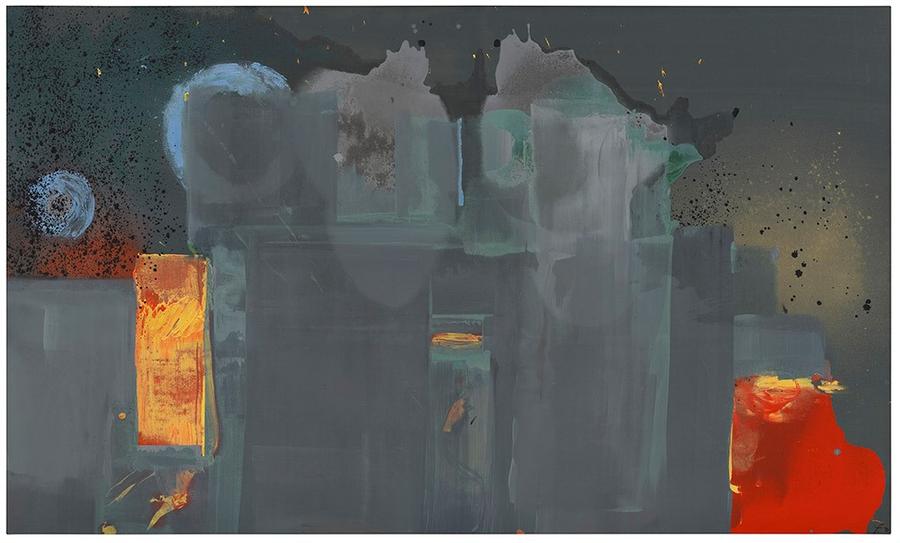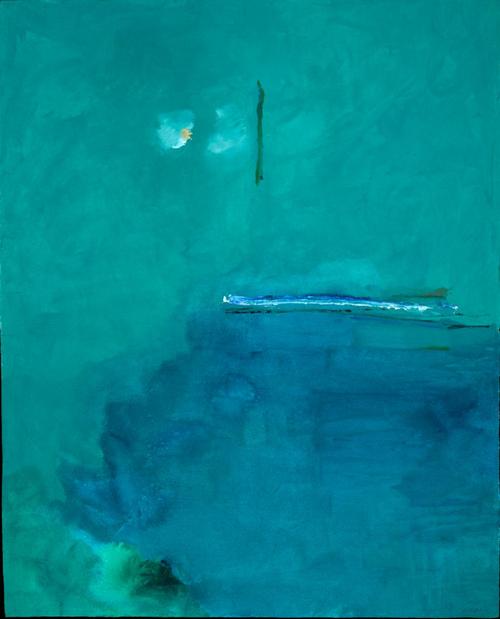Oct. 14, 2021 and will run through February 27, 2022

This fall, Palm Springs Art Museum will present Helen Frankenthaler: Late Works, 1990-2003, the first museum exhibition dedicated to the late work of Helen Frankenthaler. The exhibition will feature 20 paintings on paper and 10 paintings on canvas on loan from the Helen Frankenthaler Foundation. It opens Oct. 14, 2021 and will run through February 27, 2022.
As a second-generation postwar abstract artist, Helen Frankenthaler (1928-2011) played a key role in the transition from Abstract Expressionism to Color Field painting beginning in the 1950s with her soak-stain technique, which involved pouring thinned oil paint directly onto unprimed canvas. She was a fearless experimenter, particularly when it came to new materials and processes.
Frankenthaler (1928–2011), whose career spanned six decades, has long been recognized as one of the great American artists of the 20th century. She was eminent among the second generation of postwar American abstract painters and is widely credited for playing a pivotal role in the transition from Abstract Expressionism to Color Field painting. Through her invention of the soak-stain technique, she expanded the possibilities of abstract painting while referencing figuration and landscape in unique ways. In later years, her practice continued to evolve through her use of diverse media and processes, as she shifted from painting canvas on the floor to using larger sheets of paper that were laid out on the floor or on table tops for easier accessibility. The continuity between the late work and what came before is striking, as Frankenthaler continued to move in intuitive directions that were inspired by her mood and imagination.

“Frankenthaler is one of the great American artists of the 20th century. She demonstrated continuous innovation and creativity over the course of her illustrious six-decade career,” says Adam Lerner, Executive Director/CEO of Palm Springs Art Museum. “We’re delighted to be working with the Frankenthaler Foundation to present this first opportunity for the public to view her later work, which built upon her early successes and furthered some of her ongoing studies.”
Towards the end of her life, Frankenthaler deployed many of the same media and instruments that had been her longtime staples: charcoal, crayon, pastel, pen, and ink, as well as acrylic paint thinned out and applied with brushes, sponges, and an array of hardware utensils (windshield wipers, basters, and scrapers).
Having always painted canvases directly on the studio floor, she started using larger sheets of paper—some measuring over 6 feet—likewise laid out on the floor or on table tops for easier accessibility.
“We are pleased that a significant body of Helen Frankenthaler’s late work has been brought together in this exhibition,” says Elizabeth Smith, Executive Director of the Helen Frankenthaler Foundation. “With the addition of late canvases, the presentation at Palm Springs Art Museum offers a more complete view of the evolution of Frankenthaler’s creative process in the later decades of her lengthy career.”
Curated by Douglas Dreishpoon, Director of the Helen Frankenthaler Catalogue Raisonné and Chief Curator Emeritus at the Albright-Knox Art Gallery, with loans from the Collection of the Helen Frankenthaler Foundation, the project will be documented by a multi-authored publication with Radius Books.